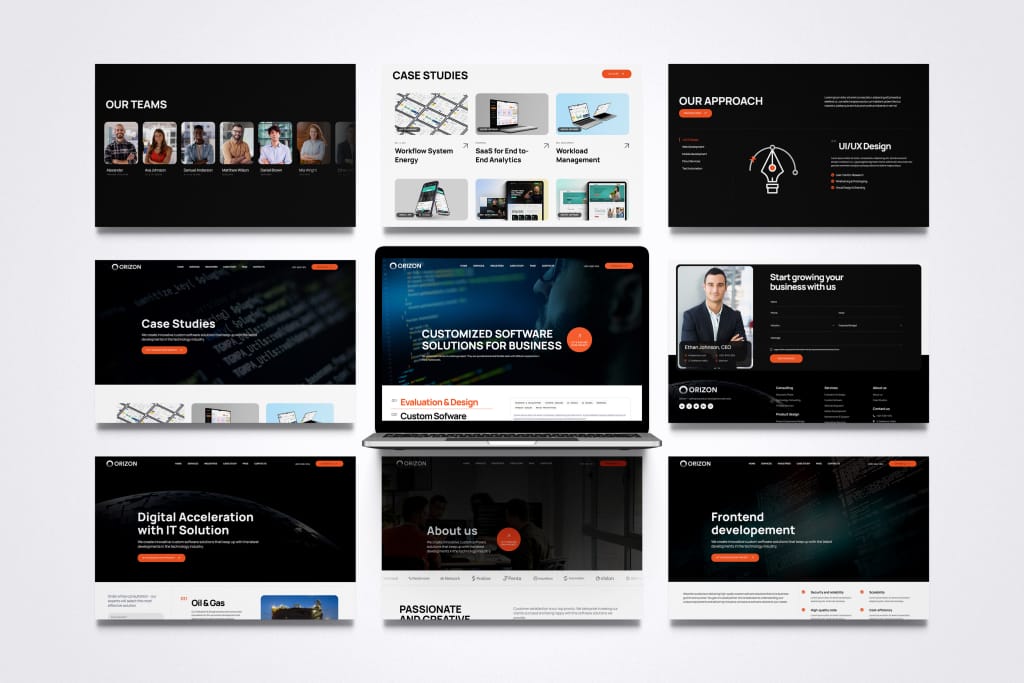In today’s digital age, the devices we use to browse the web come in all shapes and sizes—from smartphones and tablets to desktops and laptops. This diversity in device usage makes responsive web design crucial for any modern website. Without it, businesses risk alienating a large portion of their audience by providing a poor user experience. In this blog, we’ll explore why responsive design is no longer optional but essential for modern websites.
1. Mobile Traffic is Dominant
As of 2024, mobile devices account for more than half of all global web traffic. With such a significant shift from desktop to mobile browsing, having a website that functions well across all devices is vital. Responsive design ensures that no matter whether a user is on a smartphone, tablet, or desktop, they will have a seamless browsing experience.
A mobile-friendly website adapts its layout and features to fit smaller screens without compromising usability. This is crucial because users expect to browse without having to zoom in, scroll horizontally, or deal with distorted elements. Sites that are not optimized for mobile risk losing visitors—and in turn, potential business.
2. Improved User Experience
User experience (UX) is a key factor in determining whether someone stays on your website or leaves within seconds. A responsive design helps create a more fluid and intuitive UX by adjusting layouts, fonts, images, and navigation based on the screen size and resolution.
When users can easily navigate a website, read content, and interact with elements on any device, they are more likely to stay longer, engage with the site, and convert into customers. Poor UX due to a lack of responsive design, on the other hand, can drive visitors away, damaging your brand’s credibility and reputation.
3. Search Engine Optimization (SEO) Benefits
Google and other search engines place significant emphasis on mobile-friendliness when ranking websites. In fact, Google’s mobile-first indexing means that it primarily uses the mobile version of a site for ranking and indexing. If your website isn’t responsive, it may rank lower in search engine results, reducing its visibility and organic traffic.
Responsive design improves key SEO metrics such as bounce rate, time on site, and page load speed. A website that loads quickly and functions smoothly across devices is more likely to rank higher and attract more users. In short, responsive design and SEO go hand-in-hand when it comes to boosting your website’s performance in search engines.
4. Cost and Time Efficiency
In the past, businesses often created separate versions of their websites for desktop and mobile users. This method required maintaining two distinct sites, which increased development costs and time. Responsive design eliminates the need for a separate mobile site by using a single codebase that adapts to different screen sizes.
Not only does this reduce development and maintenance costs, but it also simplifies content updates. With a responsive site, any change made to the desktop version automatically applies to the mobile version, ensuring consistency and saving valuable time.
5. Increased Conversion Rates
When users have a positive experience on your website, they are more likely to convert. Whether it’s making a purchase, signing up for a newsletter, or filling out a contact form, responsive design plays a key role in guiding users through these actions.
A well-designed responsive site removes barriers to conversion by making forms easier to fill out, buttons easier to click, and navigation straightforward across all devices. This ease of use can significantly increase your conversion rates, turning more visitors into paying customers or leads.
6. Future-Proofing Your Website
Technology is constantly evolving, with new devices and screen sizes regularly entering the market. A responsive website is inherently flexible, meaning it can adapt to future devices without the need for extensive redesigns. As device preferences shift, a responsive design ensures your website will remain functional and visually appealing, no matter what comes next.
In an era where new gadgets like foldable phones and smartwatches are emerging, future-proofing your website through responsive design is a smart long-term strategy.
7. Consistent Branding Across Devices
Maintaining a consistent brand image is crucial for building trust with your audience. A responsive design ensures that your branding elements—such as logos, colors, fonts, and messaging—are displayed consistently across all devices. Whether a user visits your site on a desktop, smartphone, or tablet, they should have the same cohesive experience.
This consistency not only strengthens your brand’s identity but also makes your business appear more professional and reliable, ultimately helping to build brand loyalty.
Responsive design is no longer just a trend—it’s a necessity. By ensuring your website looks and performs well on all devices, you improve user experience, enhance SEO, and future-proof your online presence. For businesses aiming to stay competitive in today’s digital landscape, investing in responsive design is essential to maximize engagement and drive success.













